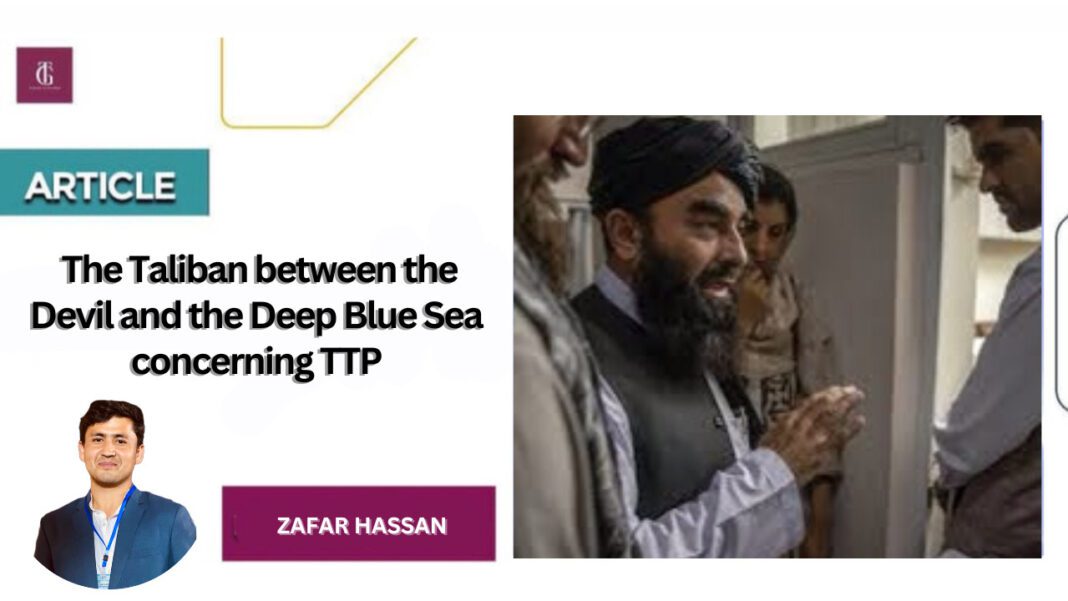The coming of the Taliban to power in Afghanistan in 2021 was supposed to be a good omen for the Pakistani deep state. Pakistan hoped to cash out its influence on the Taliban to sort out some issues like terrorism and border issues. The rise of terrorism in Pakistan is directly linked to the situation in Afghanistan. Further, the Pakistani deep state feels relaxed, hoping to divert full attention from two front borders to one so that India could be easily countered. The common Pakistanis seemed so happy for their Afghani Muslim brothers that they started a trend on Twitter saying Taliban are our guardians. A different image of the Taliban was portrayed, glorifying the Talibs. But wait, what is the situation right now? Did the Talibs meet our expectations?
From the realist perspective, you must do anything for your country’s national interest, so Pakistan supported the Taliban. But the question arises here whether supporting the Taliban proved a successful policy to counter our key issues. Now, the Taliban are between the devil and the deep blue sea, when Pakistan needs the Taliban to act. But before understanding the matter, we should first understand the factions-based structure of the Taliban. At present, there are three distinguished factions in Afghan Taliban. The moderate groups, hardliner fighters, and the hardliners with international agenda.
The moderates have engaged with the world diplomatically and played a vital role in the Doha agreements. They have an understanding of world affairs and diplomacy. The group believes in limited cooperation with the international community to strengthen the Taliban’s rule and to get international support. Mullah Abdul Ghani Baradar, the first deputy prime minister of the Taliban regime, and Mullah Amir Khan Muttaqi, the minister of foreign affairs, are this faction’s prominent names. They are fewer than other factions and have limited influence over the Taliban government.
The second one is the hard-liners. They follow a strict and extreme ideology of Islam. They fought with all their strength against the United States and their allies in the war on terror. They believe the Taliban should never surrender to any American or foreign demands. They are the ones who oppose women’s education and involvement of women in the workforce and state affairs. Mullah Yaqoob Omer, the fighters of the Haqqani group, and senior Taliban fighters of Kandahar and Helmand are among this faction. They are good at fighting and guerrilla warfare tactics but lack the knowledge to run state affairs domestically and internationally.
The third faction is much related to the hardliners but with international agenda and subscribes to the idea of pan-Islamism. They believe that they should extend their activities worldwide if Sharia could be enforced in Afghanistan by defeating the world’s superpower. They support the narratives of Al Qaeda and TTP. Here arises the conflict among the Taliban factions as the moderates promised the world community in Doha Accords to act against militant groups, but this faction opposes such a notion.
It is astonishing that the second and third factions of the Taliban are dominating the moderate group day by day. Mullah Baradar was expected to become the first prime minister of the regime. However, under the pressure of the hardliner groups, Mullah Hassan Akhund was selected as the prime mister who was a hardliner. Thus, one can say these are the groups that represent the Afghan Taliban today. These are the groups because of which the Taliban is now in a troubled position, and the situation in Afghanistan is deteriorating daily.
Pakistan, like too many countries, has concerns over the Taliban. The most significant issues are the Durand Line and Tehreek Taliban Pakistan (TTP). According to reports, thousands of TTP fighters enjoy safe havens in Afghanistan and operate terrorist attacks in Pakistan. Many experts believe Afghan Taliban is capable of countering TTP in Afghanistan. But the Taliban is neither willing nor able to take action against TTP. If the Taliban government starts taking action against TTP, the biggest threat could be that the hard-liners who only know fighting would ally against the Taliban government. The alliance of TTP and ISKP, along with hardliners of TTA, could prove a final blow to the Taliban government, and that could destabilize the whole region.
Another reason for not taking action against such groups is ideological. The Taliban is a mindset and extremist religious movement based on strict interpretations of the Deobandi version of Islam. Thus, they cannot ignore their fellow brothers morally who have fought against the United States and their allies for a long time.
If the Taliban take no action against militant groups, the international community will never accept the existence of the Taliban. The human rights record and severe bans on women’s rights are the spheres where the Taliban government is not showing any flexibility. The economic condition in Afghanistan is waning at a great pace. Only international aid could save the fragile economy running on foreign aid for a long time. But the international community, especially the United States, has frozen the Taliban’s foreign assets, fueling the trouble for common Afghans.
Although it is a challenging situation for Taliban leaders, without showing any flexibility, no good thing for the Taliban could be expected from the international community. Also, regional powers such as Pakistan, China, India, and Iran can play their roles. These countries can play their role by establishing good economic ties with the Taliban government. The Taliban should adhere to their stance that the territory of Afghanistan would not be used for terrorism against any country. If the peace of the country and economy of Afghanistan would not be stabilized, chaos would be created, causing trouble not just to the country but to the whole region; even the world could move towards another 9/11.






